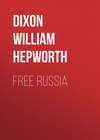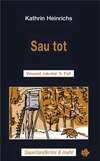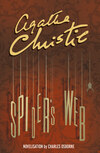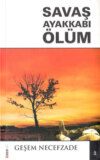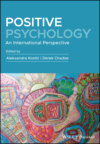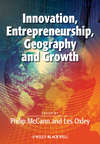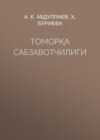Kitabı oku: «Free Russia», sayfa 21
CHAPTER XLV.
ST. GEORGE
St. George is a patron saint of all the Slavonic nations; whether Wend or Serb, Russine or Russ, Polack or Czeck; but he is worshipped with peculiar reverence by the elder Russ. His days are their chief festivals; the days on which it is good for them to buy and sell, to pledge and marry, to hire a house, to lease a field, to start an enterprise. Two days in the year are dedicated in his name, corresponding in their idiom and their climate to the first day of spring and the last day of autumn; days of gladness to all men and women who live by tending flocks and tilling fields. On the first of these days the sheds are opened, the cattle go forth to graze, the shepherd takes up his crook, the dairy-maid polishes her pots and pans. The second day is a kind of harvest-home, the labor of the year being over, the harvest garnered, and the flocks penned up. But George is a city saint as well as a rustic saint. His image is the cognizance of their free cities, and of their old republics; and the figure of the knight in conflict with the dragon has been borne in every period by their dukes, their grand dukes, and their Tsars. His badge occurs on a thousand crosses, amulets, and charms; dividing the affections of a pious and superstitious race with images of the Holy Trinity and the Mother of God. The knight in conflict with the dragon was proudly borne on the shield of Moscow hundreds of years before the Black Eagle was added to the Russian flag. That eagle was introduced by Ivan the Third; a prince who began the work (completed by his grandson, Ivan the Fourth) of crushing the great boyars and destroying the free cities. Ivan copied that emblem from the Byzantine flag; a symbol of his autocratic power, which many of his people read as a sign that devil-worship was the new religion of his army and his court. They saw in this black and ravening bird the Evil Spirit, just as they saw in the white and innocent dove the Holy Ghost. To soothe their fears, St. George was quartered on the Black Eagle; not in his talons, but on his breast; and in this form the Christian warrior figures on every Russian flag and Russian coin.
St. George was the patron of an agricultural and pacific race; a country that was pious, rich, and free; and what he was in ancient times he still remains in the national heart. As the patron of soldiers he is hardly less popular with princes than peasants. Peter the Great engraved the figure of St. George on his sword; the Empress Catharine founded an order in his name; and Nicolas built in his honor a magnificent marble hall. Yet the high place and typical shrine of St. George is Novgorod the Great.
For miles above and miles below the red kremlin walls at Novgorod, the Volkhof banks are beautiful with gardens, country houses, and monastic piles. These swards are bright with grass and dark with firs; the houses are of Swiss-like pattern; and the convents are a wonder of the land. St. Cyril and St. Anton lend their names to masses of picturesque building; but the glory of this river-side scenery is the splendid monastery of St. George.
Built by Jaroslav, a son of St. Vladimir, on a ridge of high ground, near the point where Lake Ilmen flows into the river Volkhof, the Convent of St. George stood close to an ancient town called Gorod Itski – City of Strength – literally, Fenced Town. Of this fenced town, a church, with frescoes older than those of Giotto, still remains; a church on a bluff, with a quaint old name of Spas Nereditsa: literally, Our Saviour Beyond Bounds. In these old names old tales lie half-entombed. From this fenced town, the burghers, troubled by a fierce democracy, appear to have crossed the river and built for themselves a kremlin (that is to say, a stone inclosure) two miles lower down the stream, on a second ridge of ground, separated from the first by an impassable swamp. This new city, called Novgorod (New Town), was to become a wonder of the earth; a trading republic, a rival of Florence and Augsburg, a mother of colonies, a station of the Hanseatic League.
The old Church of our Saviour Beyond Bounds, and the still older Convent of St. George on the opposite bank, were left in the open country; left to the neglects of time and to the ravages of those Tartar begs who swept these plains from Moscow to the gates of Pskof.
Neglect, if slow, was steady in her task of ruining that ancient church, now become a landmark only; but a landmark equally useful to the critic of church history, and to the raftsman guiding his float across the lake. As we leave the porch, an old man, standing uncovered near the door, calls out, "You come to see the church – the poor old church – but no one gives a ruble to repair the poor old church! It is St. George's Day; yet no one here remembers the dear old church! Look up at the Mother of God; see how she is tumbling down; yet no man comes to save her! Give some rubles, Gospodin, to our Blessed Lady, Mother of God!" The old man sighs and sobs these words in a voice that seems to come from a breaking heart.
St. George was able to defend his cells and shrines; and in all the ravages committed by Tartar hordes, the rich convent near Lake Ilmen was never profaned by Moslem hoof. Cold critics assume that the belt of peat and bog lying south of Novgorod for a hundred miles was the true defense; but the poets of Novgorod assert, in many a song and tale, that they owed their safety from the infidel spoilers to no freak of nature and no arm of flesh. St. George defended his convent and his city by a standing miracle; and, in return for his protecting grace, the people of this province came to kneel and pray, as their fathers for a thousand years have knelt and prayed, before his holy shrine.
My visit to the Convent of St. George is paid (in company with Father Bogoslovski, Russian pope, and Mr. Michell, English diplomat) on the autumnal festival of the saint. Three or four thousand pilgrims, chiefly from the town and province of Novgorod, camp in a green meadow; their carts unyoked; their horses tethered to the ground; their camp-fires lighted here and there. Each pilgrim brings a present to St. George; a load of hay, a sack of flour, a pot of wax, a roll of linen, an embroidered flag. That poor old creature, who can hardly walk, has brought him a ball of thread; a widow's mite, as welcome as an offering in gold and silver. Booths are built for the sale of bread and fruit; tea is fizzing on fifty stalls; grapes, nuts, and apples are sold on every side. The peasants are warmly and brightly clad: the men in sheep-skin vests, fur caps, and boots; the women in damask gowns and jackets, quilted and puckered, the edges fringed with silver lace. A fine day tempts the women and children to throw themselves on the green in groups. Monks move among the crowd; country folk stare at the finery; hawkers chaffer with the girls; and more than one transparent humbug makes a market of relics and pious ware. Every one is in holiday humor; and the general aspect of the field in front of the convent gates is that of a village fair, with just a dash of the revival camp.
The worshippers are a placid, kindly, and (for the moment) a sober folk, with quaint expressions and old-world manners. On the boat we hear a rustic say to his neighbor, "If you are not a noble, take your bundle off that bench and let me sit down; if you are a noble, go into the best cabin, your proper place." The neighbor sets his bundle down, and the newcomer drops into his seat, saying, "See, there is room for all Christians; we are equal here, being all baptized." An English churl might have said he had "paid his fare." On board the same boat a man replies to the steward, who wishes to turn him out of the dining-room, "Am I not a Christian, and why should I go out?" On hiring a boat to cross the river, Father Bogoslovski says to the oarsman, "Take your sheep-skin; you will get a cold." "No; thank you," answers the waterman, "we never take cold if God is with us." Another boatman tells us we are doing a "good work" in visiting the shrines. "Once," he says, "I was sick, and died; but I prayed to my angel Lazarus to let me live again. He listened to my prayers, not for my own sake, but for that of my brother, who had just come back from Solovetsk. My soul came back, and we were very glad. Your angel can always fetch back your soul, unless it has gone too far." Here stands a group of men; a young fellow with a basket of red apples, two or three lads, and an old peasant, evidently a stranger to these parts. "Eat an apple with me, uncle," says the young fellow to his elder; for a rustic, who addresses a stranger of his own age as "brother," always speaks to elderly ones as "uncle." "Very nice apples," says the stranger, "where were they blessed?" "In St. Sophia's, yonder; try them." Apples are blessed in church on August 6th, the feast of the transfiguration; the earliest day on which such garden fruit is certain to be ripe. It is an old popular custom, maintained by the Church, in the simple interest of the public health.
The scene is lovely. From the belfry of St. George – a shaft to compare with the Porcelain Tower – you command a world of encircling pines, through which flow, past your feet, the broad and idle waters of the Volkhof; draining the ample lake, here shining on your right. Below you spreads the deep and difficult marsh; and on the crests of a second ridge of land springs up a forest of spires and battlements, rich in all radiant hues; red walls, white towers, green domes, and golden pinnacles; here the kremlin and cathedral, there the city gate and bridge; and yonder, across the stream, the trading town, the bazar, and Yaroslav's Tower; the long and picturesque line of Novgorod the Great.
A bell of singular sweetness soothes the senses like a spell. At one stall you drink tea; no stronger liquor being sold at the convent gate. At a second stall you buy candles; to be lighted and left on the shrines within. At a third you get consecrated bread; a present for your friends and domestics far away. This fine white bread, being stamped with the cross and blessed, is not to be bought with money; for how could the flesh of our Lord be sold for coin? It is exchanged. You give a man twenty kopecks; he gives you a loaf of bread. Gift for gift is not barter – you are told – but brotherly love. On trying the same thing at an apple-stall, the result appears to you much the same. You pay down so many kopecks; you take up so much fruit; the quantity strictly measured by the amount of coin laid down. You see no difference between the two? Then you are not an Oriental, not a pilgrim of St. George.
Some twelve or fifteen thousand men and women bring their offerings, in kind and money, every spring and autumn, to the shrine of this famous saint.
CHAPTER XLVI.
NOVGOROD THE GREAT
Sitting at my window, gazing into space – in front of me that famous tower of Yaroslav, from which once pealed the Vechie bell; and, lying beyond this tower, the public square, the bridge, the Kremlin walls, Sophia's golden domes, and that proud pedestal of the present reign, which tells of a Russia counting already her thousand years of political life – I fall a dreaming of the past, until the sceneries and the people come and go in a procession; not of dead things, but of quick and passionate men, alive with the energies of past and coming times.
What were the shapes and meanings of that dream? A wide expanse of wood and waste; forests of fir and silver-birch; with tarns and lakes on which the wild fowl of the country feed their young; and by the shores of which the shepherds and herdsmen watch their scanty flocks. In the midst of this wood and water stands a low red wall of stone, engirding a mass of cabins, with here and there a bigger cabin, from the peak of which springs a cross. A river rolls beneath the wall, the waters of which come from a dark and sombre lake. The space within the wall is a kremlin, an inclosure, and in this kremlin dwell a band of traders and craftsmen; holding their own, with watchful eye and ready hand, like the lodgers in a Syrian khan, against wild and predatory tribes. The life of these men is hard and mean; the air is bleak, the soil unfruitful; and the marauders prowl forever at their gates.
A mist of time rolls up and hides the red stone wall and shingles from my sight, and, when it clears away, a vast and shining city stands exposed to view, with miles of street and garden, and an outer wall, of sweep so vast that the eye can hardly take it in, with massive gates and towers to defend these gates, of enormous strength. The river is now alive with boats and rafts; the streets are thronged with people, and a hundred domes and steeples glitter in the sun. The red kremlin, not now used as a castle of defense, is covered with public buildings; one a cathedral of gigantic size and surpassing beauty; another, a palace with a garden, belted by a moat; the citadel in which the traders nestled together for their common safety having now become the seat of temporal and spiritual power. Long trains of horses file through the city gates, bringing in the produce of a thousand hamlets, which the merchants store in their magazines for export and expose in their bazars for sale. These merchants bring their wares from East and West, and send them in exchange to the farthest ports and cities of the earth. Their town is a free town, to which men from all nations come and go; a republic in the wilderness; a station of the Hanseatic league, devoting itself to freedom, commerce, and the liberal arts. The life of a great country flows into their streets and squares; from which run out again the prosperous purple tides into the unknown regions of ice and storm. Forth from her gates march out the colonists of the North; the men of Kem and Holmogory; men who are going forth to plant on the shores of the Arctic Sea the free institutions under which they live at home. A prince, elected by the people, serving while they list, sits in the chair of state, like a Podesta in Italian towns; but the actual power is in the hands of the Vetchie: a popular council, summoned by the ringing of a bell – the great city bell – which swings in Yaroslav's Tower.
Now comes a change, which seems to be less a change in the outward show than in the inner spirit of the place. The merchant has become a boyar, the nobleman a prince. Pride of the eye, and lust of the heart, are stamped upon every face. The rich are very rich; the poor are very poor; and men in cloth of gold affront and trample on men in rags. The streets – so spacious and so busy! – are disturbed by faction fights; and the Vetchie bell is swinging day and night, as though some Tartar horde were at the gates. The boyars have grown too rich for freedom, and the ancients of the city sell their consciences for gold and state. Deeming themselves the equals of kings, they give their city not only the name of Great, but the name of Lord. On public documents they ask – as if in mockery – Who can stand against God, and Novgorod the Great?
Again falls the mist of time; and as it rolls away, the city, still as vast, though not so busy as of yore, seems troubled in her splendor by a sudden fear. The bell which tolls her citizens to council, seems wild with pain, and men are hurrying to and fro along her streets; none daring, as in olden days, to snatch down lance and sword, and counsel his fellows to go forth and fight. For an enemy is nigh their gates, whom they have much offended, without having virtue enough to resist his arms. Ivan the Fourth, returning from a disastrous raid on the Baltic seaboard, hears that in his absence from Moscow, the citizens of Novgorod, hating his rule, have sent an embassy to the Prince of Sweden, praying him to take them under his protection; and in his fury the tyrant swears to destroy that city, and to sow the site with salt. An army of Tartars and Kozaks is at the gates; an army sullen from defeat and loss, and only to be rallied by an orgy of drink and blood. Pale with terror, the citizens run to and fro; the women shriek and swoon; and help for them is none, until Father Nicolas, an ancient man, with flowing beard and saintly face, stands forward in their midst. A wild creature; an Elisha the prophet, a John the Baptist; he stands up in their meeting, naked from head to feet. Such a man suits the times; and as he offers to go forth and save the city from ruin, they gladly let him try. Nicolas marches forth, in his nakedness, to denounce his prince in the midst of his ravenous hordes; and when he comes into the camp, he walks up boldly to the Tsar. Ivan, himself a fanatic, listens to this naked man with a patience which his guards and ministers observe with wonder. "Bloodsucker and unbeliever!" cries the hermit, "thou who art a devourer of Christian flesh – listen to my words. If thou, or any of these thy servants, touch a hair of a child's head in yon city – which God preserves for a great purpose – then, I swear by the angel whom God has given unto me to serve me, thou shalt surely die; die on the instant, by a flash from heaven!" As he speaks, the sky grows dark, a storm springs up, and rages through the tents. A pall comes down, and covers the earth. "Spare me, fearful saint," shrieks the Tsar, "the city is forgiven; and let me, in remembrance of this day, have thy constant prayers." On these conditions Nicolas withdraws his curse; and Ivan, marching into the city with his captives and his treasures, lodges in the Kremlin and the palace, and kneeling before the shrine of St. Sophia, makes himself gracious to the people for the hermit's sake.
Once more a mist comes down – a thin white veil, which passes like a pout from an infant's face. The city is the same in size, in splendor, in the fullness of her fearful life. The Tsar, who went away from her gates low and humble, has come back, like a wild beast thirsting for blood and prey. His army camps beyond the walls, and a whisper passes through the city that the place is to be razed, the women given up to the Tartars, while the men and boys are to be put without mercy to the sword. The city razed! No fancy can take in the fact; for Novgorod is one of the largest cities in Europe, a republic older than Florence, a capital larger than London, a shrine more sacred than Kief. Her walls measure fifty miles, her houses contain eight hundred thousand souls. Yet Ivan has doomed her to the dust. Telling off ten thousand gunners of his guard, and thirty thousand Tartars from the steppe, he gives up the republic to their lust, bidding them sack and burn, and spare neither man nor maid. They rush upon the gates; they scale the wall; they seize the bridge, the Kremlin, the cathedral; and they make themselves masters of the city, quarter by quarter and street by street. No pen will paint the horrors of that sack. The wines are drunk, the people butchered, the houses fired. Day by day, and week after week, the club, the musket, and the torch are in constant use. The streets run blood, the river is choked with bodies of the slain. When the work of slaughter stops, and the Tartars are recalled into their camp, the tale of murdered men, women, and children is found to be greater than the population of Petersburg in the present day. The desolation is Oriental and complete.
The city bell – the bell of council and of prayer – is taken down from Yaroslav's Tower and sent to Moscow, where it hangs beside the Holy Gate – an exile from the city it roused to arms, and haply speaking to some burgher's ear and student's heart of a time when Russian cities were equal to those of Italy and England, and her people were as free as those of Germany and France!
CHAPTER XLVII.
SERFAGE
Serfage has but a vague resemblance to the system of villeinage once so common in the West; and serfage was not villeinage under another name. Villeinage was Occidental, serfage Oriental.
Villein, aldion, colonus, fiscal, homme de pooste, are words which, in various tongues of Western Europe, mark the man who belonged to a master, and was bound by law to serve him. Whether he lived in England, Italy, or France, the man was stamped with the same character, and laden with the same obligation. He was a hedger and ditcher – churl, clod, lout, and boor – heavy as the earth he tilled, and swinish as the herds he fed. He could not leave his lord; he could not quit his homestead and his field. In turn, his master could not drive him from the soil, though he might beat him, force him to work, throw him into prison, and sell his services when he sold the land. But here the likeness of serf to either villein, aldion, colonus, fiscal, or homme de pooste ends sharply. No one thought the villein was an actual owner of the soil he tilled, and in no country was the emancipation of his class accompanied by a cession of the land.
Serfage sprang from a different root, and in a different time. The great settlement, which is the glory of Alexander's reign, can only be understood by reference to the causes from which serfage sprang.
Some of the facts which prove this difference between Western villeinage and Eastern serfage lie beyond dispute. Villeinage was introduced by foreign princes, serfage by native tsars. Villeinage followed a disastrous war; serfage followed liberation from a foreign yoke. Villeinage came with the dark ages and passed away with them. Serfage came with the spreading light, with the rising of independence, with the sentiment of national life. Villeinage was forgotten by the Rhine, the Severn, and the Seine, before serfage was established on the Moskva and the Don.
In short, serfage is a historical phase.
In one of the book-rooms of the Academy of Sciences, in Vassile Ostrof, St. Petersburg, you turn over the leaves of an early copy – said to be the first – of "Nestor's Chronicle," in which are many fine drawings of scenes and figures, helping you to understand the text. This copy is known as the Radzivil codex. Nestor wrote his book in Kief, a hundred years before that city was sacked by Batu Khan; and the pictures in the Radzivil codex give you the early Russian in his dress, his garb, and his ways of life. Was he in that early time an Asiatic, dressed in a sheep-skin robe and a sheep-skin cap? In no degree. The Russian boyar dressed like a German knight; the Russian mujik dressed like an English churl.
In Nestor's time the Russians were a free people, ruled in one place by elective chiefs, in another place by family chiefs. They were a trading and pacific race; in the western countries settled in towns; in the eastern countries living in tents and huts. Novgorod, Pskof, and Illynof were free cities, ruled by elected magistrates, on the pattern of Florence and Pisa, Hamburg and Lubeck. In those days there was neither serf nor need of serf. But this old Russia fell under the Mongol yoke. Broken in the great battle on the Kalka, the country writhed in febrile agony for a hundred and eighty years; during which time her fields were scorched, her cities sacked, her peasants driven from their homes into the forest and the steppe. She had not yet raised her head from this blow, when Timur Beg swept over her prostrate form; an Asiatic of higher reach and nobler type than Batu Khan; a scholar, an artist, a statesman; though he was still an Asiatic in faith and spirit. Timur brought with him into Russia the code of Mecca, the art of Samarcand, the song of Ispahan. His begs were dashing, his mirzas polished. In the khanates which he left behind him on the Volga and in the Crimea, there was a courtesy, a beauty, and a splendor, not to be found in the native duchies of Nijni, Moscow, Riazan, and Tver. The native dukes and boyars of these provinces held from the Crim Tartar, known to our poets as the Great Cham. They swore allegiance to him; they paid him annual tribute; they flattered him by adopting his clothes and arms. The humblest vassals of this Great Cham were the Moscovite dukes, who called themselves his slaves, and were his slaves. Standing before him in the streets, they held his reins, and fed his horses out of their Tartar caps. They copied his fashions and assumed his names. Their armies, raised by his consent, were dressed and mounted in the Tartar style. They fought for him against their country, crushing those free republics in the north which his cavalry could not reach.
This fawning of dukes and boyars on the Great Cham brought no good to the rustic; who might see his patch of rye trodden down, his homestead fired, and his village cross profaned by gangs of marauding horse. Even when a Tartar khan set up his flag on some river bank, as at Kazan, in some mountain gorge, as at Bakchi Serai, he was still a nomad and a rider, with his natural seat in the saddle and his natural home in the tent. A little provocation stirred his blood, and when his feet were in the stirrups, it was not easy for shepherds and villagers to turn his lance. A cloud of fire went with him; a trail of smoke and embers lay behind him. No man could be sure of reaping what he sowed; for an angry word, an insolent gesture of his duke, might bring that fiery whirlwind of the Tartar horse upon his crops. What could he do, except run away? When year by year this ruin fell upon him, he left his cabin and his field; working a little here, and begging a little there; but never striking root into the soil. Now he was a pilgrim, then a shepherd, oftener still a tramp. To pass more easily to and fro, he donned the Tartar dress; a sheep-skin robe and cap; the robe caught in at the waist by a belt, and made to turn, so that the wool could be worn outwardly by day and inwardly by night. In self-defense he picked up Tartar words, and passed, where he could pass, for one of the conquering race.
Why should he plough his land for other men to spoil? While he was watching his corn grow ripe, the khan of Crim Tartary, stung by some insult from the duke, might spur out rapidly from his luxurious camp at Bakchi Serai, and, sweeping through the plains from Perekop to Moscow, waste his fields with fire.
Like causes produce like effects. Nomadic lords produce nomadic slaves. The Russian peasant became a vagabond, just as the Syrian fellah becomes a vagabond, when from year to year his crops have been plundered by the Bedouin tribes.
When Ivan the Fourth, having learned from the Tartar Begs how to rule and fight, broke up the khanates of Kazan and Astrakhan, and ventured to defy the lord of Bakchi Serai, he found himself an independent prince at the head of a country, rich in soil, in capital, and in labor, but with fields deserted, villages destroyed, populations scattered, and public roads unsafe. The land was not unpeopled; but the peasants had lost their sense of home, and the mujiks wandered from town to town. Labor was dear in one place, worthless in another. Half the land, even in the richer provinces, lay waste; and every year some district was scourged by famine, and by the epidemics which follow in the wake of famine. How were the peasants to be "fixed" upon the land?
For seventy years this question troubled the court in the Kremlin, even more than that court was troubled by Church controversy, Tartar raid, and family strife; although within this period of seventy years St. Philip was murdered, the Great Cham burnt a portion of Moscow, Dimitri the legitimate heir was killed, and Boris Godounof usurped the throne. Ivan the Fourth tried hard to induce his people to return upon their lands; by giving up many of the crown estates; by building villages at his own expense; by coaxing, thrashing, forcing his people into order. Even if this reformer never used the term serf (krepostnoi, a man "fixed" or "fastened,)" he is not the less – for good and ill – the author of that Russian serfage which is passing away before our eyes.
